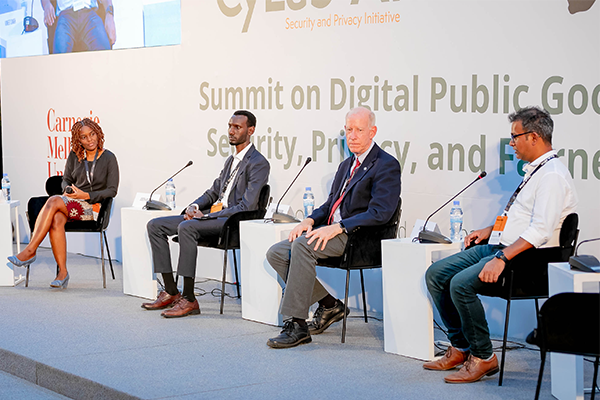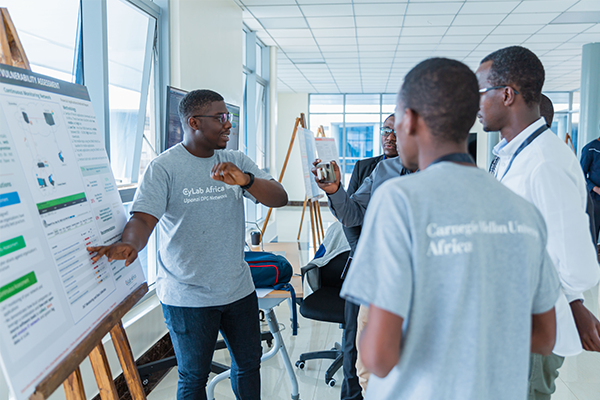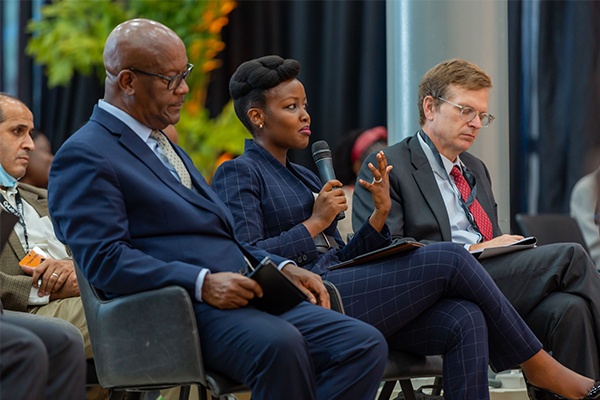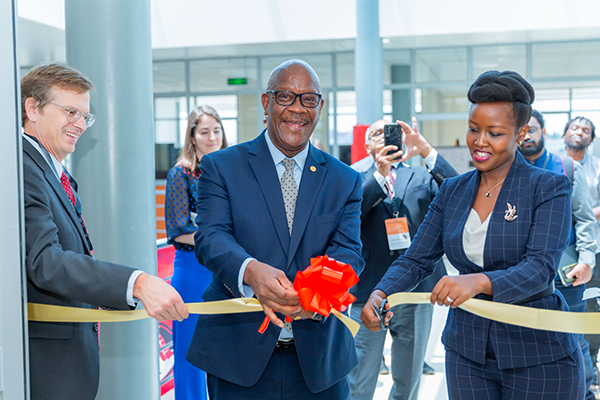Securing Africa’s cyberspace
Monica Sumbi
Nov 1, 2022
A 2020 Global System for Mobile Communications Association (GSMA) report indicates that 38% of African citizens are online. With an estimated population of 1.4 billion people on the continent, it is clear that Africa is indeed on the verge of a digital transformation. Although digitizing Africa is a big area of opportunity, it also presents serious threats and challenges. Digital solutions providers are lacking incentives, affordable resources, and the ability to adapt new models. Consumers, on the other hand, are wary to trust digital technologies. And, limited cybersecurity capacity remains an overarching challenge.
Ready to tackle these challenges is the CyLab-Africa initiative, a collaboration between Carnegie Mellon University’s CyLab Security and Privacy Institute and CMU-Africa. The initiative, made up of African cybersecurity experts, aims to improve the cybersecurity of digital systems in Africa and other emerging economies.
"Africa is a unique and fragile environment. We are intentional about building infrastructure that will enable trust, equity, fairness, and resilience through research and education," says Assane Gueye, an associate teaching professor at CMU-Africa and co-director of CyLab-Africa.
In their first year, CyLab-Africa and the newly announced Upanzi Network (funded by the Bill and Melinda Gates Foundation) have made deliberate strides toward improving cybersecurity in Africa. In particular, they have focused on stakeholder engagement within the cybersecurity ecosystem.
- In October 2021, CyLab-Africa, in collaboration with the Africa Cybersecurity Research Center, convened members from academia across Africa for discussions in cybersecurity awareness, education and research for a two-day workshop.
- In March 2022, the Upanzi Network held a workshop on digital public goods
- In May 2022, the West Africa Conference on Digital Public Goods and Cybersecurity held in Sierra Leone, contemplated how to make digital tools a trustworthy, equitable option for the continent.
- The recently-concluded CyLab-Africa Digital Public Goods Summit on Security, Privacy and Fairness sought to drive research and development priorities, establish a common understanding of technical requirements by highlighting the gaps in the current systems, and ultimately give technical meaning to security, privacy, and fairness.
Stakeholder engagement is particularly important in the cybersecurity space. The United Nations secretary general has created a strategy in which all stakeholders play a role in advancing a safer, more equitable digital world. In this strategy, the security general discusses how access, trust, and resilience are pivotal milestones that must be successfully achieved for Africa’s digital transformation. It is essential that the continent’s cybersecurity backbone is built on effective and efficient infrastructure, technology and intentional workforce development initiatives, which requires the participation of respective stakeholders in the ecosystem.
Many of these stakeholder conversations centered around digital public goods (DPGs). According to the Digital Public Goods Alliance, digital public goods are open-source software, open data, open AI models, open standards and open content that adhere to privacy and other applicable laws and best practices, do no harm by design, and help attain the UN’s Sustainable Development Goals.
"Just building DPGs is not sufficient. We need to develop infrastructure and interoperability standards, end-to-end evaluation frameworks that will function in the real world, establish standards for in-field evaluation and guarantee sustainable solutions," says Giulia Fanti, an assistant professor of electrical and computer engineering and co-director of CyLab-Africa.
The Upanzi Network has current initiatives in digital identity and digital payments, capacity building, and human technology interaction with a broader vision of agriculture, health, digital wealth, and education. If you or your institution are interested in getting involved or learning more, please download our CyLab-Africa information packet and contact Michael Lisanti.



